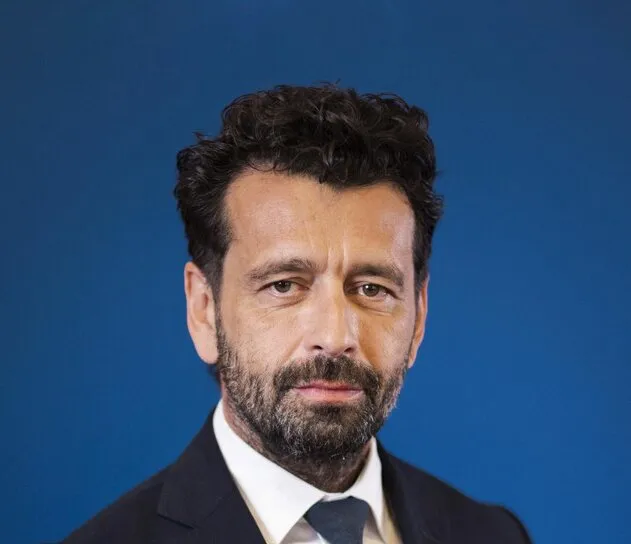Investing in the heart of Central Europe
With solid infrastructures and a skilled workforce, Hungary emerges as an appealing destination for investors looking into expanding in Europe.

Situated in the heart of Europe, Hungary represents a beacon of economic resilience and investment potential. From traditional manufacturing to cutting-edge technologies, Hungary provides a conducive business environment and a myriad of incentives, attracting both established corporations and budding entrepreneurs alike. With a GDP growth rate consistently outpacing that of the Eurozone, the country has garnered global attention from investors seeking stable returns.
Bridge between the East and the West
Historically, Hungary has played a significant role as a bridge between the East and the West, owing to its strategic location. Geopolitically positioned at the crossroads of Europe, its economy is intricately linked with both Eastern and Western markets, fostering economic partnerships with Eastern European and Eurasian countries. Tibor Tóth, Minister of State at the Ministry of Finance, emphasizes, “As part of the EU, Hungary provides access to the EU’s single market of 500 million consumers.”

“Hungary is building its position as a bridge between Western European and Asian investors.”
Record-breaking FDI in 2023
Hungary has become increasingly attractive for foreign direct investment, with FDI surpassing €13 billion in 2023, doubling the previous record of €6.5 billion in 2022. “Hungary is consistently breaking FDI records,” highlights Tóth. The government actively seeks to attract FDI through various policies and incentives, including tax breaks, subsidies, and streamlined administrative procedures. Hungary boasts the lowest corporate tax rate in the OECD, at 9%, while personal income is taxed at a flat rate of 15%. Special Economic Zones provide a favorable regulatory environment and infrastructure support, while the Hungarian Investment Promotion Agency offers professional assistance to foreign investors. “From an investor’s point of view, interest from western economies is still very strong, but the interest from Asian economies is getting even more intensive. In recent years, Korean and Chinese investors are taking the lead FDI position,” says Tóth, pointing out that Hungary is building its position as a bridge between Western European and Asian investors.

Winner of the new global economic era
Innovation drives Hungary’s economy, bolstered by significant investments from multinational companies like Novartis, Audi, Mercedes-Benz, IBM, and Samsung, among others. Key sectors attracting substantial investments include automotive manufacturing (with a recent focus on electric vehicles), life sciences, and information technology. For instance, Novartis is establishing a new regional research and development center in Budapest, which will be responsible for coordinating clinical research activities across more than 12 countries and significantly increase local employment opportunities. “This investment has been made possible by the Hungarian government’s ambition to make the country a leader in innovation in Europe,” emphasizes Colette Matz, Country President of Novartis Hungary. Indeed, the pharmaceutical industry is one of the pillars of the Hungarian economy, with both domestic and foreign players. In the past decade, Hungary saw 23 major pharmaceutical investments and last year alone the sector received over €3 billion in investments.

In Hungary, Novartis holds the mantle of the leading pharmaceutical company by revenue and has been certified as a top employer for a third time in a row. With a presence spanning 33 years, Novartis now conducts one in ten of all clinical trials nationwide, during which the company shoulders significant patient care costs, encompassing medications, tests, and diagnostics. Moreover, Novartis collaborates closely with Hungarian medical universities, national institutes, and county hospitals.
“Our investments in the country have been made possible by the Hungarian government’s ambition to make the country a leader in innovation in Europe.”
Colette Matz emphasizes the company’s significant impact on Hungarian healthcare, citing that one in three individuals in Hungary benefit from Novartis-developed medicines and therapeutic treatments. The company’s initiatives in Hungary exemplify its dedication to advancing healthcare through innovation, collaboration, and strategic investments, underscoring its role as a transformative force in the global pharmaceutical landscape.
Hungary has emerged as a frontrunner in the new global economic landscape, particularly in the electric automotive industry. The government’s concerted efforts to position the country as a major hub for the electric vehicle ecosystem are evident, with expectations of hosting five out of the 10 largest EV battery makers in the world and boasting the second-biggest EV battery manufacturing capacity globally.
Hungary’s reputation as an ideal base for expanding a business in Europe continues to charm investors. The nation’s favorable business climate nurtures both homegrown enterprises with international acclaim, such as Origo Studios and Gránit Bank, as well as internationally renowned corporations like Novartis, which have chosen to invest in Hungary.
A pioneer in introducing digital banking in Hungary, Gránit Bank’s commitment to innovative financial solutions benefits all stakeholders. Chairman-CEO Éva Hegedüs underlines the bank’s mission to offer comprehensive financial services in a simpler, more convenient, and faster manner, facilitated by digital solutions and points out that they achieved profitable operations earlier than the international benchmark, boasting an average annual growth rate of 50%. “Our business model ensures fast growth, high liquidity, and cost-effective operations, translating into enduringly favorable conditions for customers,” she explains.

“Gránit Bank’s business model ensures fast growth, high liquidity, and cost-effective operations, translating into enduringly favorable conditions for customers.”
Hungary is also building a reputation when it comes to the creative industries sector. Budapest’s growing reputation as the film capital of Europe has scaled up in recent years, standing on the shoulders of emerging high-tech film studios. One studio has distinguished itself among others, with its state-of-the-art facilities that have lured in major film productions, including blockbusters such as Dune, Blade Runner 2049, Die Hard, and many others. Origo Film Studios, the largest and most versatile movie studio complex in Hungary was established 14 years ago, and has played a pivotal role in shaping the landscape of Hungarian and international cinema. “We are the best because we were built in the so-called Hollywood style,” asserts Márta Fekszi, CEO of Origo Film Group, adding that the film complex is the second busiest film studio in Europe, right after the Pinewood studio in London.
Hungary has become a very attractive place for large international productions with the tax rebate law introduced in 2004. Today, productions are eligible for a 30% tax rebate, which is one of the most supportive in the industry. Filming in Hungary can reduce costs by up to 30-50% compared to filming in the UK, the US or Germany.

“We are the best because we were built in the so-called Hollywood style.”
Through initiatives such as workshops, mentorship programs, and production grants, the studio plays a pivotal role in nurturing homegrown talent. “We are committed to training and retaining top talent,” says Fekszi. “By bringing top talent to our facilities, we create opportunities for local professionals to work alongside some of the best in the industry,” Márta Fekszi explains. The complex has ponds, an inside small lake with fish and ducks, as well as e-charging stations for electric vehicles. “Our aim is to have a vivid and lively studio. We want people that are spending time in the studio to feel comfortable. We want them to feel at home,” the CEO underlines.
As the film industry continues to evolve, Origo Film Studios remains at the forefront of innovation, adapting to new technologies and emerging trends. From comprehensive production techniques to immersive storytelling experiences, the studio embraces cutting-edge tools and techniques to stay ahead of the curve.
Whether in manufacturing, technology, renewable energy, life sciences, medicine, or other sectors, investors can discover ample opportunities for growth and success in Hungary.
The Foreign Policy editorial team had no role in the creation of this content.

 Download the PDF
Download the PDF